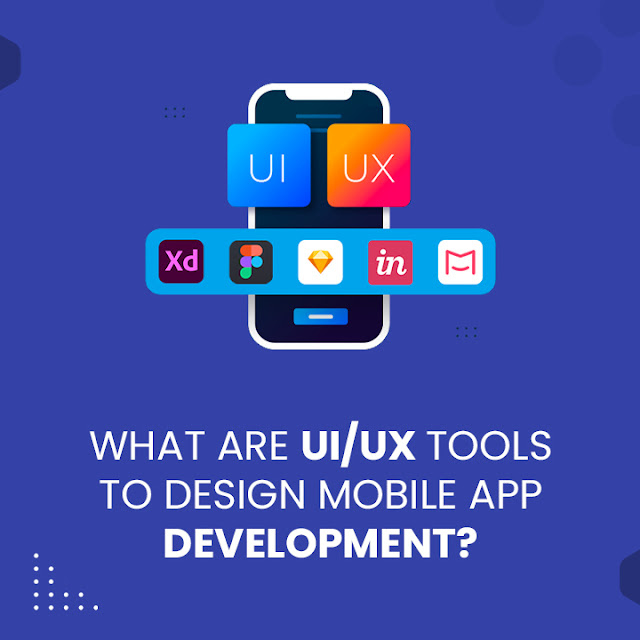Top 7 Programming Languages for Android App Development
There are many languages to choose from in Android app development if we talk about Android apps. Before we decide which is the most suitable to use, let's look at the languages you could look into to develop. In a nutshell, smartphones are a vital aspect of our daily lives. They are used to make connections, gather information, or have fun! In addition, while developing apps for smartphones is enjoyable, it needs some more direction, particularly when selecting the appropriate programming language. This article will deal with the most popular seven programming languages required to develop apps for Android App Development.
What language should you choose?
Although Kotlin is the primary native language of Android, it can use many different languages in Android App Development. Information about these languages is given below to assist you in making an informed choice.
1. Java:
First of all, Java was the primary language used for Android App Development (but now it is changed to Kotlin), which means that it's also the most widely used language. Many apps on the Play Store are built with Java as a language, and it's also the one that Google supports. Additionally, Java has a great online community of support for users in the event of any issues (And I guarantee you that there will be issues! ).
But, Java is a complicated language to learn to master, as it has complicated topics such as constructors, null pointer exceptions, check-in exceptions, concurrency, etc. Furthermore, the Android Software Development Kit (SDK) takes complexity to a new level!
Overall, Java is an excellent language for experiencing the full pleasures of Android App Development. But, it can be a bit complicated for novices who prefer to begin with something simpler and then move on.
2. Kotlin:
Today, Kotlin is officially recognized as the preferred language used for Android App Development, declared by Google in 2019. Kotlin is an open-source programming language that could utilize instead of Java to support Android App Development. Kotlin was also introduced as a third "official" Java language in 2017. Kotlin is compatible with Java and is based on Java Virtual Machine. Java Virtual Machine.
The only significant change is that Kotlin has eliminated the unnecessary features of Java-like the null pointer error. Additionally, it removes the requirement to end every line with a semicolon. It is a simple language. Kotlin can be a lot easier for newbies to master. It is less complicated than Java and can be utilized as the "entry point" for Android App Development.
3. C++:
C++ can be utilized to create Android App Development using the Android Native Development Kit (NDK). But, apps cannot be developed entirely using C++ and can use the NDK to build portions of the app using C++ native code. That can help use C++ code libraries to build the app.
Although C++ is helpful in Android App Development in some situations, it's more complicated to set up and has a lower degree of flexibility. It could also cause more bugs due to greater complexity. It is, therefore, better to utilize Java in comparison to C++ as it isn't able to provide enough benefits to compensate for the effort required.
4. C#:
C# is very like Java and is perfect for Android App Development. Similar to Java, C# also implements garbage collection, so there are fewer chances of memory leaks. Furthermore, C# also has a more straightforward and cleaner syntax than Java which makes programming using it much more manageable.
In the past, the main disadvantage of C# was that it could only run on Windows systems, as it relied on its .NET Framework. Xamarin solved this issue. Android is a cross-platform version of the Common Language Infrastructure. Now, Xamarin. Android tools can create native Android apps and distribute the code to multiple platforms.
5. Python:
A python is an excellent tool for Android App Development even though Android does not provide native Python development. That can be accomplished using various tools to convert Python applications into Android Packages that run on Android devices.
One example is Kivy. An open-source Python library used to create mobile applications. It is compatible with Android and is also a great way to speed up the development of apps (which makes it a win/win for me!). The disadvantage is that there will not be benefits native to Kivy since it's not natively available.
6. HTML, CSS, JavaScript:
Android applications can be built using HTML, CSS, and JavaScript with JavaScript, HTML, and CSS using the Adobe PhoneGap framework that Apache Cordova powers. The PhoneGap framework is essentially a way to allow web development techniques to develop hybrid applications displayed via "Web View" but packaged as an app.
Although the Adobe PhoneGap framework is enough for the most basic tasks within Android App Development, it does not require much programming, aside from JavaScript, since it needs a lot of work even to create a decent app.
7. Dart:
Dismissing Dart as a programming language within the present situation is like not paying attention to the elephant in the corner (because it's Java). Dart is an open-source language that powers the Flutter framework that has gained increasing attention nowadays due to its ability to create beautiful and efficient apps for the desktop, the web, and mobile devices in less time. The most crucial selling point of Dart is that it was developed by Google to be a user-friendly language for apps that run fast across any platform. Dart is primarily focused on making UI development more straightforward for developers by providing features like hot-reload, which allows developers to view changes in real-time when working on their app. Dart is also famous for its speed and performance. It can compile in ARM or x64 machine code for desktop, mobile, and backend. It also compiles it compiles to JavaScript for web-based applications.
Bonus:
Corona-
Corona is a software development kit that can utilize to create Android applications using Lua. It operates in two modes, including the Corona Simulator and Corona Native. Its Corona Simulator is used to develop apps on the fly. In contrast, Corona Native is used to connecting the Lua code to the Android Studio program to create an application with native features.
Although Lua is a bit limited compared to Java, it's more user-friendly and has a less challenging to learn curve. Additionally, there are built-in monetization functions and various tools and plugins that enhance the development of apps. Corona is used primarily for creating graphics games and apps, but it's not restricted to just that.
Conclusion:
It's time for you to conquer Android and the Android ecosystem! There are plenty of apps like Chat Messenger music players, Games, and Calculators which can be developed with the mentioned languages. It is not possible to create a language that is considered to be to be the "correct language" for Android App Development. It is up to you to choose the proper language selection according to your goals and preferences for each project. And always remember, whatever your choice, it will only expand your skillset and lead to your growth as an Android developer.




Comments
Post a Comment